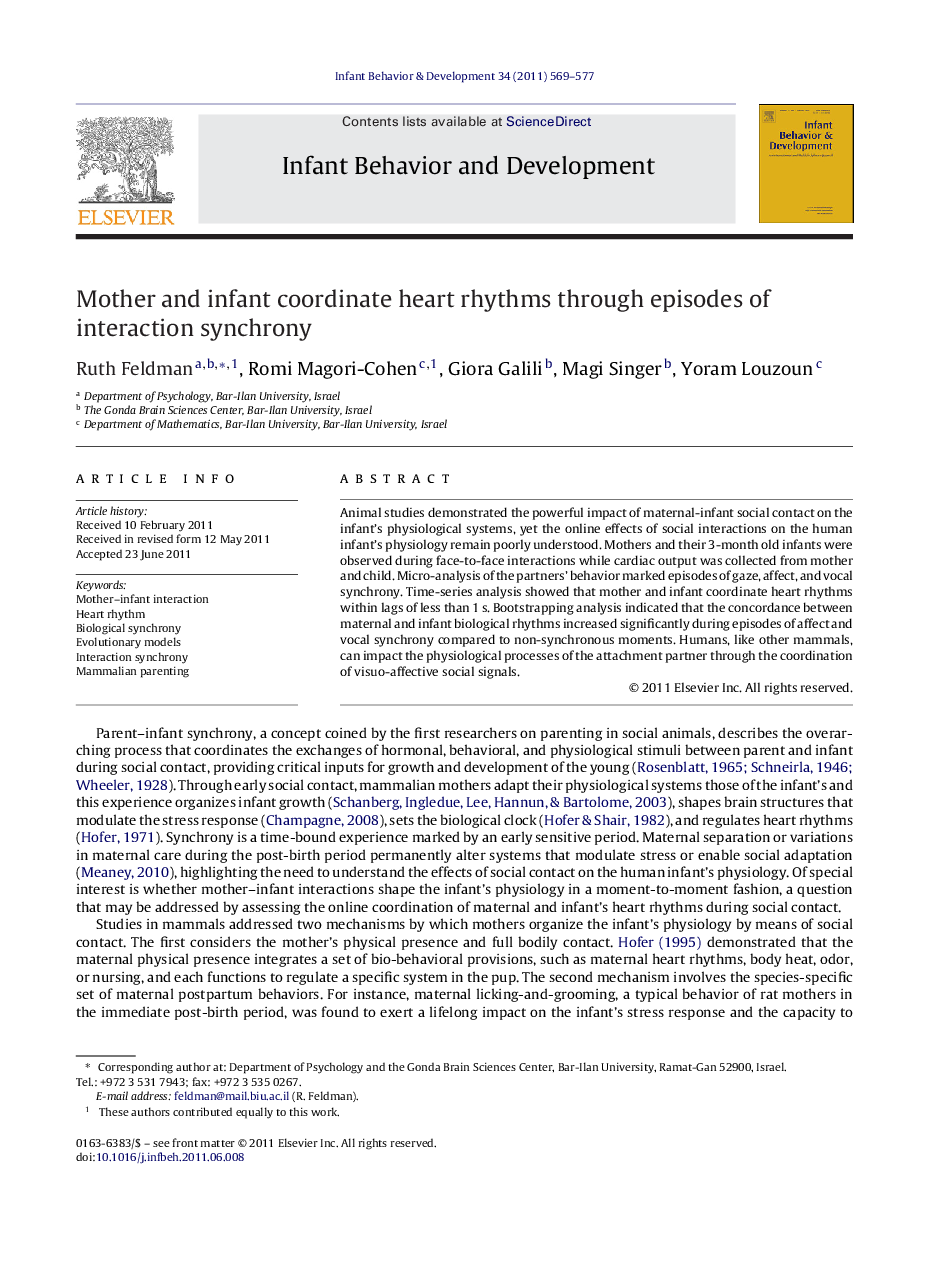| Article ID | Journal | Published Year | Pages | File Type |
|---|---|---|---|---|
| 917283 | Infant Behavior and Development | 2011 | 9 Pages |
Animal studies demonstrated the powerful impact of maternal-infant social contact on the infant's physiological systems, yet the online effects of social interactions on the human infant's physiology remain poorly understood. Mothers and their 3-month old infants were observed during face-to-face interactions while cardiac output was collected from mother and child. Micro-analysis of the partners’ behavior marked episodes of gaze, affect, and vocal synchrony. Time-series analysis showed that mother and infant coordinate heart rhythms within lags of less than 1 s. Bootstrapping analysis indicated that the concordance between maternal and infant biological rhythms increased significantly during episodes of affect and vocal synchrony compared to non-synchronous moments. Humans, like other mammals, can impact the physiological processes of the attachment partner through the coordination of visuo-affective social signals.
► Mothers and infants coordinate their heart rhythms during social interactions as seen by both time-series analysis and bootstrapping analysis. ► This indicates a process of online bio-behavioral synchrony by means of social contact, similar to other mammals. ► However, during periods of affect or vocal synchrony the degree of biological synchrony between maternal and infant heart rhythms increases substantially. ► Unlike other mammals, humans can impact the physiological processes of the attachment process not merely by means of physical touch but through visuo-affective social synchrony.
